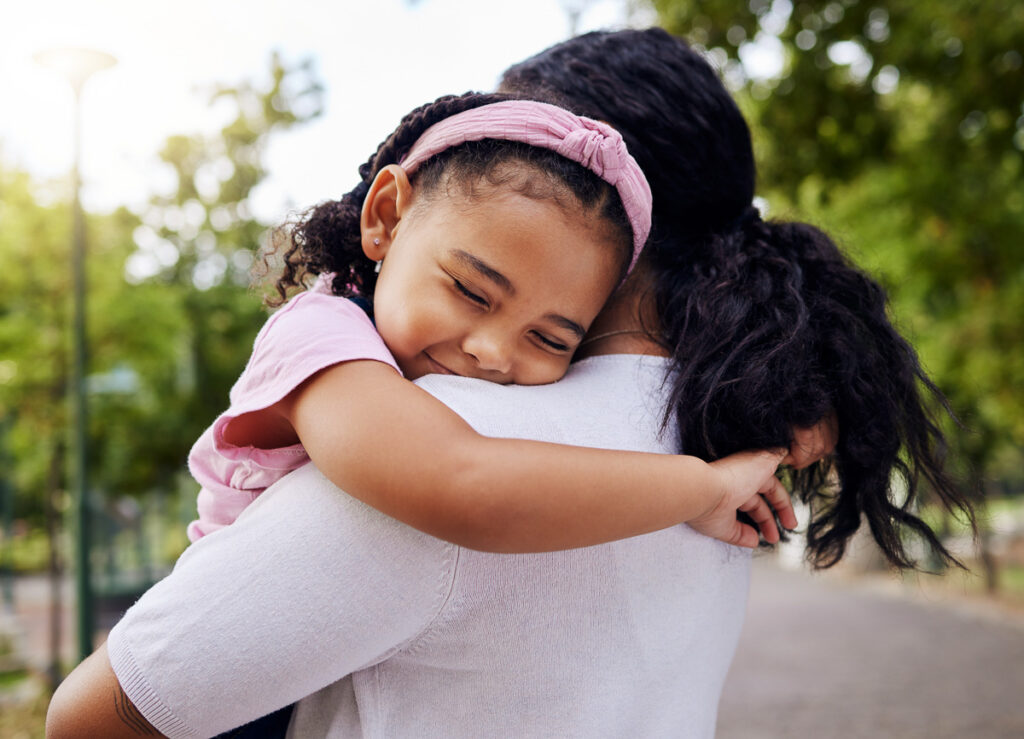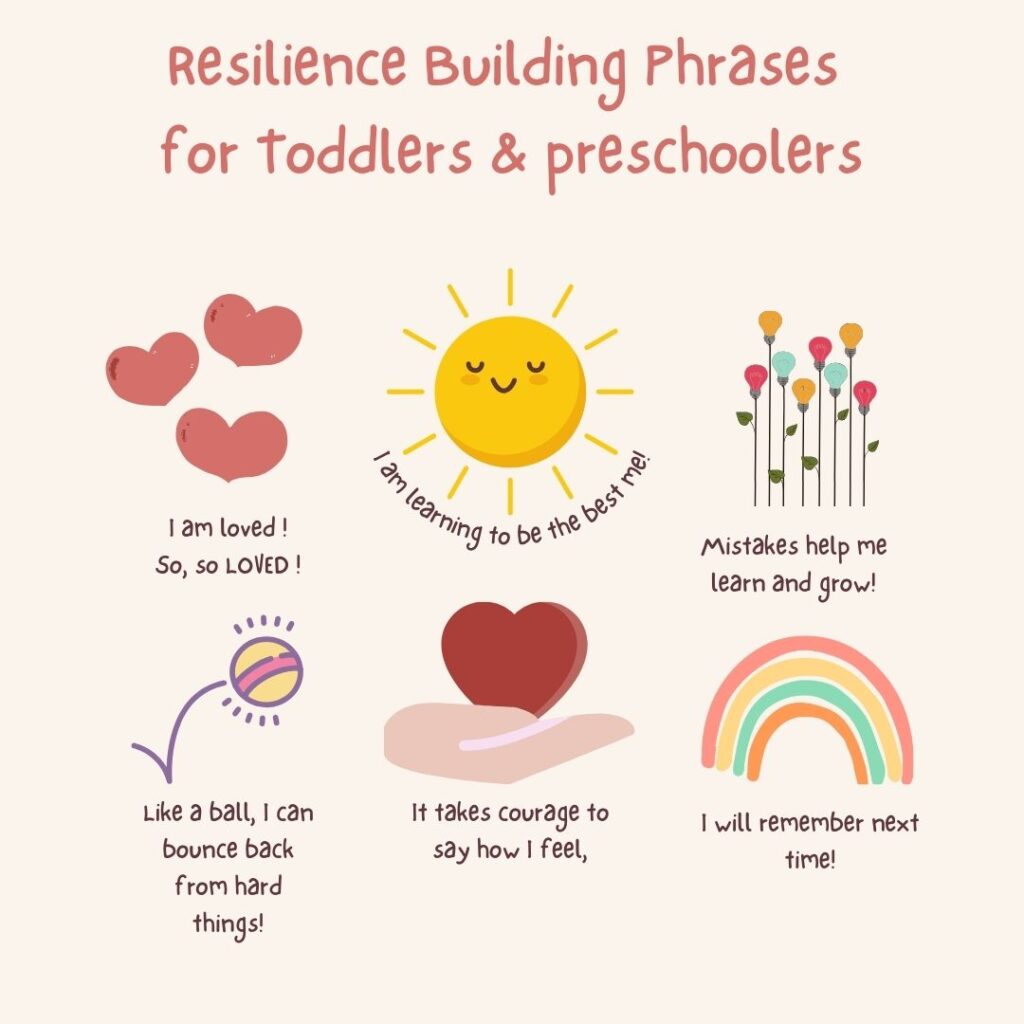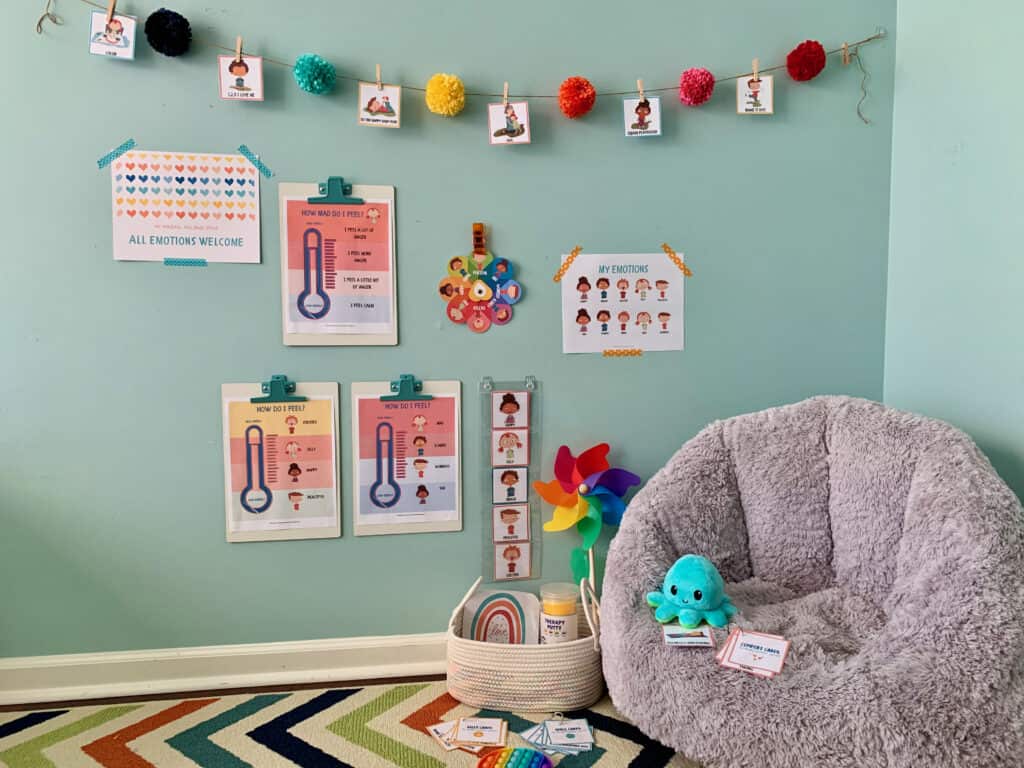Inside: Discipline your toddler or young child without shame and instead help them build the skills they will use their whole life from within. One phrase you should always use with your toddler when disciplining. A phrase that empowers rather than shames.
The original meaning of the word discipline comes from the Latin “disciplina,” meaning “teaching, learning” and is related to the word disciple. To discipline is to teach — that is our role as parents, even as we are still learning ourselves.
When disciplining our children, we want to empower them to change their behavior, not shame or try to control them. We want our children to build up self-regulation skills within themselves, not conform to set rules or behave out of fear.

Your child will naturally outgrow many “problem” behaviors as their brain grows and they gain more self-regulation. (Read more about the amazing brain development in the toddler years here).
In the meantime, it is important to help your children develop a healthy relationship with their emotions and that mistakes are learning opportunities, not something to feel shame about. Our goal is to teach our children how to behave in social situations so they can form deep and meaningful relationships with others throughout their lives.
Growth Mindset and Empowerment For Toddlers
Children live in the here and now, and young children, in particular, think in a “fixed” mindset, meaning that they don’t naturally assume things can or will change.
We have to teach them that they can change their behavior and that they can grow.
For example, when children realize they have done something wrong, they feel failure, and to them, it feels permanent — a permanent mistake.
How can we help our kids move from a feeling of failure and shame to a feeling of empowerment to learn and grow?
5 Steps for Using Positive Discipline with Toddlers: Shift from Shame to Empowerment
When your child does something you want them to do differently, follow these steps:
- Acknowledge the feeling or impulse while setting a boundary: “It is okay to have big feelings and I won’t let you use your hands to show your big feelings.”
- Allow the Expression of Emotion: Children may react emotionally to having their goals blocked. Accept those big emotions, and reinforce the first step. “It is okay to feel frustration, I will keep you and your friend safe, I won’t let you push.”
- Comfort and soothe: If they are in the midst of big emotions, your goal is to help their nervous system calm down and not act like emotions are a threat.
- Once Calm, Problem Solve: How can you both play with the toy?
- Empower, Don’t Shame: Once children calm down feelings of shame can set it. They know they’ve made a mistake and had big emotions and if you are just beginning to work on accepting emotions, this can be especially true. Help them feel empowered by saying always saying this phrase, “You’ll remember next time.”
Read more –> 3-Step Guide for Positive Parenting Toddlers and Kids
Read More –> How to Hold Space for Your Child’s Emotions and Impulses
Why it Works: Shifting Focus to the Positive
Following these steps empower children to change their behavior instead of shaming them. Acknowledging emotions, problem-solving, and encouraging them that they will remember next time lets your child know that their failure today isn’t a permanent failure and that they can change.
It also helps them resolve their current feelings (I feel bad now, but next time I can do better) and gives them a sense of relief and a desire to try next time. This harnesses a growth mindset instead of a fixed mindset. It empowers them as opposed to shaming them.
If they do remember next time, they might even point it out to you “I remembered Mama! I used my words!” with their eyes shining with pride. And you’ll respond with a “Yes, you did remember! You used your words!” just as excited as they are.
When they do that, you’ll know it happened — they were empowered to change their behavior from within. The shift to the positive worked, along with learning opportunities (without mistakes, they wouldn’t learn) and brain maturity.
And it’s okay if they don’t remember. The phrase still works because sometimes they will remember — and there is always the next time. This helps shift the focus from the times they’ve made a mistake (which really is brain immaturity and learning opportunities) and to focus on the times they do remember. See the graphic below for more resilience building phrases for toddlers!

What to do next…
1. Get advice from Dr. Ashley Soderlund sent right to your inbox. ❤︎
When you sign up you will get Dr. Ashley’s 5-part Mindful Parent Quick Win Series. These quick wins are designed to get you started implementing some strategies that are rooted in love and backed by science.
After that, you will receive emails when Dr. Ashley has new resources and seasonal series like back-to-school mental health, and holiday gratitude series.
2. Emotional and mental wellness begins at home.
Get the tools you need in my shop! Digital printables you can instantly download and print to foster connection, emotion regulation, and more! Check out the Nurture and Thrive Shop.

Related:
How to Discipline Your Toddler: A Three-Step, Easy to Remember Strategy (that works!!!)
The Secret to Your Two-Year-Old’s Heart (and gaining their cooperation!)

 How To Help Your Kid Wake Up Happy
How To Help Your Kid Wake Up Happy